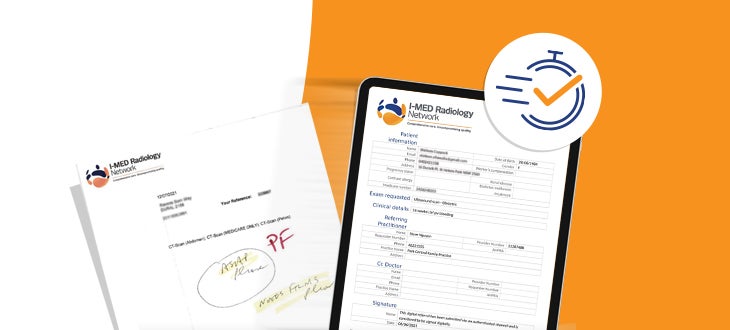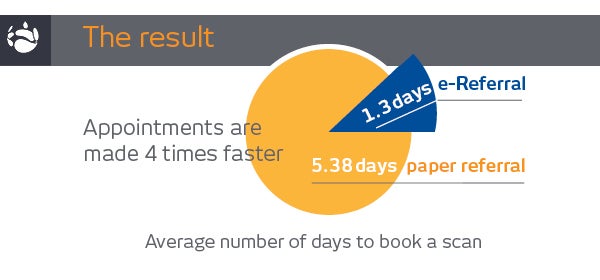
The results are in – appointments are made faster with e-Referrals
The results are in – appointments are made faster with e-Referrals

e-Referrals have become the preferred method for health practitioners to request medical imaging for their patients. We know that when integrated seamlessly into your PMS, the e-Referral system streamlines your medical imaging requests.
We now also know that patients are more responsive when their doctor uses e-Referrals and tend to book their radiology appointments within a faster time period, compared to when they are issued a paper referral.
But, how much faster?
I-MED Radiology's investigation
To understand the difference in time between an e-Referral and a standard paper referral booking, I-MED Radiology performed a review and analysis of 288 patient bookings. This sample consisted of 147 paper referral bookings and 141 e-Referral bookings.
The number of days taken to make each of the 288 bookings was recorded, and an average value for each variable (e-Referral vs paper) was then identified. Day 0 was considered the date the referrer first sent the referral.
Results
It was found that when an e-Referral was sent, patients booked their appointments, on average, 4 times faster.
It took 5.38 days when using a paper referral, to book their radiology appointment, compared to the 1.13 days for patients using an e-Referral.

e-Referrals lead to better healthcare outcomes
e-Referrals offer greater efficiency and allow patients to manage their own radiology journey. With the ability to schedule their radiology test 4 times faster, via e-Referral, it is possible that your patients will also return to their referring practitioner for clinical review faster.
Study features
- Sample size: 288 I-MED Radiology bookings*
- Variables: Sample consisted of 147 paper-based referrals and 141 e-Referrals
- Dates: Bookings were made between 1 Feb and 29 August 2021
- Location: Clinic bookings in Greater Western Sydney, Central Coast and Brisbane
*Analysed across a section of modalities including CT (Computed Tomography), Guided-Injection, X-ray, MRI (Magnetic Resonance Imaging), Ultrasound, Mammogram.
I-MED Radiology used G* Power 3 analysis to confirm this sample as 95% statistically significant.
